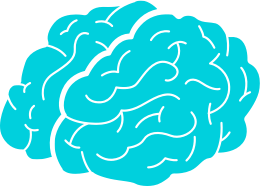Though I always knew that I had a factitious disorder–at least on some level–it was difficult to admit to it on a practical level. I can go about discussing my childhood, which was not a happy one, but I don’t care to relive it. One of the reasons I found it difficult to admit to it is that there is little if any treatment in the eyes of most professionals; it is generally considered to be a hopeless diagnosis. I really thought that if this was true for me, I must be a lost cause. But God does not create lost causes. Feeling like FD was a hopeless diagnosis kept me from being able to admit it first to myself, then when trying to find any kind of treatment. Some also consider borderline personality disorder to be a hopeless diagnosis. None of this is true. It does get better and there is always hope.
What I want to say is that even a serious factitious disorder is not hopeless. Believing that it is makes it harder to admit to it. There is psychotherapy which can help you to develop some insight into how FD developed and strategies to prevent an occurrence. These strategies can include DBT (Dialectical Behavioral Therapy) or STEPPS (Systems Training for Emotional Predictability and Problem Solving) for coping skills, as well as CBT (cognitive behavioral therapy) and EMDR (Eye Movement Desensitization and Reprocessing). A whole-person approach also includes the treatment of existing (legitimate) health conditions, even if it involves pain that would drive anyone up the wall. And in some cases, though medications won’t make you honest, they can treat depression or anxiety or help to stabilize mood.
But as someone who suffers (or did) from a factitious disorder, what I can tell you is that a 12-step program is absolutely essential. This is what truly saved my life. And recovery is about healthy boundaries–with yourself and with others such as family members and friends. There is an excellent series of Christian and self-help books by Drs. Cloud and Townsend on boundaries that have been helpful to me (Safe People, Boundaries, Changes that Heal, and How People Grow).
Finally, what I want to discuss last is forgiveness. When I thought about what I had done to myself, I had a panic attack. When I thought about the good people who had been hurt by what for me was an addiction (to medical treatment) as well as a basic problem with a lack of honesty, I spent weeks, if not months, wanting to take my own life. I would give anything to take back all of it, but I can’t. I can only stay on the right path. Forgiveness takes time. It does help to make amends if and where you can, but to forgive myself I had to ask God for His help. And I had to come to view myself as a sick person mentally and spiritually. But I also had to learn to forgive myself because not doing so is like swallowing poison and expecting not to die.


Thanks a lot really helped me
Bluebird,
I’m doing great. I celebrated 2 years with no weed, opiates, benzos, alcohol or unnecessary treatment a few days ago. I am now sponsoring another woman in the program and she’s doing the deal. I’m very proud of her and I am glad to know that even this has helped another person. There is little that any sponsee will ever be able to tell me that I have not seen or done myself. There are second chances, even for this.
I’m working full time (recently had medically necessary surgery too), am no longer on disability and just bought my first house. All of these things can be yours too.
I also provide my own medical insurance and pay for my own treatment-that has a way of deciding if you really need it. And given all the years I was a drain on the system, it seems appropriate. I have also started a book on the treatment of factitious disorders. If there are any proceeds, the bulk of them will go to a charity for some of those affected by my addiction.
I’m glad my experience has benefited someone. Keep up the good work!!!
Hi. This really resonated with me – so much of what you have said is how I have also felt while suffering with FD. I just wanted to say a big thank you for sharing your experience. Hope you are doing well.
Bluebird,
I’m doing great. I celebrated 2 years with no weed, opiates, benzos, alcohol or unnecessary treatment a few days ago. I am now sponsoring another woman in the program and she’s doing the deal. I’m very proud of her and I am glad to know that even this has helped another person. There is little that any sponsee will ever be able to tell me that I have not seen or done myself. There are second chances, even for this.
I’m working full time (recently had medically necessary surgery too), am no longer on disability and just bought my first house. All of these things can be yours too.
I also provide my own medical insurance and pay for my own treatment-that has a way of deciding if you really need it. And given all the years I was a drain on the system, it seems appropriate. I have also started a book on the treatment of factitious disorders. If there are any proceeds, the bulk of them will go to a charity for some of those affected by my addiction.